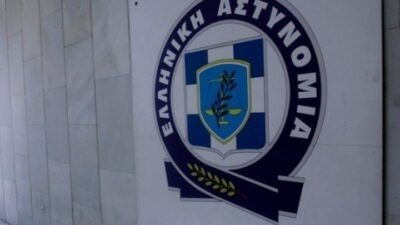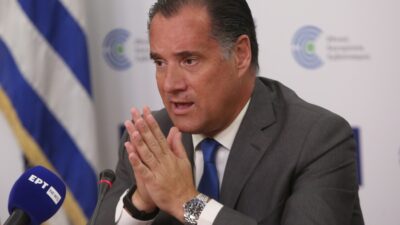Spyros Gkoutzanis: Greece: Handling of Turkish crisis causes reverberations within the ruling party
17/08/2020
The developments in Greek-Turkish relations and the prospect of negotiations on all issues are causing some vibrations of low intensity within the ruling party. Of course, no one would want or propose a military confrontation, but the violation of the potential Greek continental shelf by Oruc Reis is perceived as a lack of a comprehensive strategic approach to Turkey on the part of the government.
Behind the scenes, there is criticism that the submissive and reassuring attitude and misreading of Ankara’s intentions sends the wrong message to both the other side of the Aegean and the international community. Backing down to Turkish provocations is causing dissatisfaction mainly among the self-proclaimed “patriotic wing” of the ruling New Democracy party, while it is eroding any advantage of the New Democracy party among the public with increased national sensitivities, which it co-opted against SYRIZA on the occasion of the Macedonian issue.
It is certain that if the breach of the continental shelf had taken place during SYRIZA’s term and if it had shown a similarly submissive attitude, the pseudo-patriotic public and the government-fed media would have demanded resignations and denounced a national debacle, etc.. Now the party is in an embarrassing spot, but there seem to be movements being made. People from the scientific and political fields related to former PM Samaras are moving to create a think tank focused on national issues.
Some would see it as the model for a future party in the event that Mitsotakis is dragged into a comprehensive negotiation with Turkey “with the agreement of former Simitis-modernizing circles and SYRIZA”. Samaras, like Karamanlis, had warned in time with their public statements since November 2019 about the increase of Turkish provocation and the pressure for unconditional dialogue that Greece would accept from “allies”, noting that the government should not bend to this.
Former PM Karamanlis, according to his usual Pontius Pilate tactics, then “washed his hands”. In his personal conversations, however, he estimates that the course of referring all the disputes is almost prescribed, without the proper preparation of the country.
Samaras is in waiting
Samaras remains active, not just watching what is happening, but intervening. It is recalled that he recently gave an interview in which he stated that “you do not talk to pirates”. As he was the one who had led the opposition against SYRIZA on the occasion of the Macedonian issue, he now faces the “accusation that he is not interested in national issues, but in taking revenge on Tsipras and that he used the Macedonian issue as a flag of opportunity”.
His own influential MPs in their debates judge Mitsotakis’ handling negatively. They point out not that he did not go to war in the current crisis, but that with his stance of backing down for a year now it has sent the wrong messages, intimidated by the Turkish side and ultimately leading to a full-fledged negotiation within the agenda of the Turkish claims. .
MPs close to Samaras do not hide their frustration, as in fact their inconsistency in relation to the fierce opposition they exercised to SYRIZA during the national elections was evident. So they say that, of course, during the crisis and while the Armed Forces were facing the Turkish fleet, the last thing they would do would be to criticize and split the national front. However, they note, things are different when the crisis will be overcome and the government is dragged, as it seems, into an unconditional dialogue.
When this happens, there will be a flurry of criticism and political moves. One of Samaras’ interlocutors said – at a time before the escalation of the crisis – that if this is the perspective then a gap is created in the political spectrum and conditions arise for the creation of a “New Right” party with a strong national and anti-immigrant sign. Of course, it does not escape their attention that the Greek-Turkish dialogue mediated by Berlin has already been accepted by Athens.
This was also confirmed by the Prime Minister in his last address. The fact that the dialogue (and the negotiations?) started in secret also causes dissatisfaction. The meetings and the content were first revealed by Cavusoglu (Berlin meeting) and then by Kalin. Athens seems to have delegated the communication management of the approach to Erdogan’s representative!
Review and vindication of Simitis
Overall, however, Mitsotakis overturns the tradition of foreign policy that Karamanlis had formulated since 2004, when he canceled the appeal to The Hague that Simitis had launched (?). The only government that had prepared after 22 rounds of talks the referral to The Hague – and not just of the continental shelf – was the Simitis government.
He had even involved the Europeans and promised Erdogan, who was then seeking a foothold as prime minister in Europe, to accept the referral in order to get the green light to start accession negotiations in 2004. However, the Simitis government did not complete the process. as the then Prime Minister and Foreign Minister and his successor in PASOK, George Papandreou, were not prepared to refer to the International Court of Justice the “gray zones”, or “border problems”!
The prospect, however, was completely overturned by Karamanlis and Foreign Minister Molyviatis, who released Erdogan from this obligation in December 2004. Turkey began negotiations without the obligation to refer the dispute to court. The Karamanlis-Molyviatis logic was similar, that the Greek public was not ready to accept concessions on what it considered non-negotiable, not just, sovereign rights, but also territorial integrity. On the contrary, by freezing developments, they maintained the status quo and gave time.
Now Mitsotakis is preparing to accept under pressure the referral to The Hague under much worse conditions. The agenda of the Turkish claims has swelled and in the meantime the power difference between the two countries has widened. Turkey has been strengthened economically and geostrategically and is facing not the Greece of the 2004 Olympic Games, but the bankrupt and weakened country of the memoranda.
Samaras as prime minister also moved along the Karamanlis-Molyviatis line, who at that time in the proposals for dialogue and sharing said “you share something that is controversial and common, you do not share something that is yours”. During his tenure as prime minister, he played a key role in Erdogan’s policy, which he described as a win-win situation. It is interesting how the two former prime ministers of ND will react to the acceptance by their successor of a policy that ultimately justifies Simitis.




